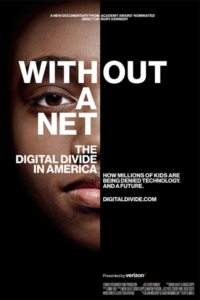Digital Citizenship: All hands on deck
I have taken one EdTech class already and so I’ve heard the concept of digital citizenship thrown around a handful of times. In fact I’m positive I personally used it a few times as well. I thought I had a good understanding of what digital citizenship is, but after reading Ribble’s nine elements I realized I wasn’t truly aware of just how much is included in it. I think that seeing as I work for the university the common thought is that we’re no longer prepping students to become adults, we’re prepping adults for specific jobs. As such digitial citizenship never really factors into my thought process when I’m helping to develop an online class. I mean even the nine elements progression chart goes only goes as far as high school. All that to say that in this blog I will be discussing digital citizenship in the classroom, and seeing as I’m not there first hand there will be a lot of speculation in my writing. I would love for educators to confirm or deny what I have to say!
Now, prior to this week if you had asked me to define digital citizenship I would’ve given a bit of a copout answer saying that it’s all of the factors that go into making sure someone is using technology in both positive and beneficial ways. Factors like online etiquette, respecting others online and not partaking or even idly standing by when you see cyberbullying taking place. Factors like contributing to the ever growing knowledge base that is the internet and not deciving others by posting fake news. Understanding that you shouldn’t act differently online than you do in person. But this definition barely scratches the surface of Ribble’s nine elements.

I feel like my definition touches on the ideal outcomes we have when teaching students digital citizenship, but where Ribble’s nine elements really differs is it includes aspects that need to be considered to reach those outcomes. For example, correct me if I’m wrong but digital access is not really something that can be taught. Obviously to begin the journey of helping children become healthy digital citiens they need to have access to technology, but it’s arguably the biggest hurdle educators face when trying to implement the nine factors. If you haven’t seen the documentary Without a Net I highly recommend it. In the film, the first challenge they mention is students not having access to technology. How are teachers supposed to prepare students for an online world if the classroom itself can’t even access it. I think what this shows is that implementing the nine elements is not just an educators job, it’s society’s job. Help from the school board, and even the government, is needed to get the ball rolling.
If access isn’t an issue then the difficulty will be in tracking the effectiveness of teaching the elements. With the normal curriculum educators can track the progress of students. Are their math skills improving? Is their writing getting any better? But with something that’s not on the curriculum I can only assume it’s incredibly difficult to track. You can teach them what digital etiquette or digital fluency includes, you can show them the kinds of supports that are available to them online. Whether any of it actually sticks with them is a different story. It’s not like educators can monitor every aspect of students online activity, nor should they if they could.
I think to really measure the effectiveness of the principles there has to be some help from the parents. The job of teaching digital citizenship to students shouldn’t fall solely on teachers and neither should tracking how well it’s being received. In my mind, tracking the effectiveness of the elements has to be done through conversations. This may sound drastic, but I have been comparing it to when I was in school and we had guest speakers come in telling us all the negatives of doing drugs, or how bad it is to drive drunk. There was no measuring how effective those sessions really were, and at the end of the day some students still went on to do those things. I think the same can be said for digital citizenship. We can and should give them guidance on how to properly utilize technology. At the end of the day some are still going to use it poorly.
Again I’ll reiterate that I’m not an educator, I’m sure that those of you with hands on experience of dealing with this in the classroom will probably be able to find better measuring techniques than my hope and pray approach. I’m excited to hear more about them so I urge you to share them with me!
